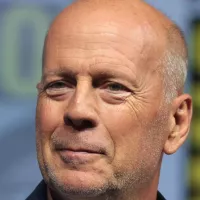South Korea, officially the Republic of Korea, occupies the southern half of the Korean Peninsula, bordering North Korea at the Demilitarized Zone. It's surrounded by the Yellow Sea and the Sea of Japan. South Korea asserts its claim as the sole legitimate government of the entire peninsula. With a population of 51.71 million, half reside in the Seoul Metropolitan Area, one of the world's largest. Major cities include Busan, Daegu, and Incheon.
1905: Japan colonizes Liancourt Rocks
In 1905, the Liancourt Rocks were the first Korean territories to be forcibly colonized by Japan.
1919: March First Movement Protests
In 1919, the March First Movement protests occurred, leading to the foundation of resistance groups in exile.
1943: Cairo Declaration
Despite intentions to liberate a unified peninsula in the 1943 Cairo Declaration, Korea was divided in 1948.
May 1948: Syngman Rhee Wins First Presidential Elections
In May 1948, Syngman Rhee won the first presidential elections of the newly declared Republic of Korea.
August 1948: Republic of Korea Established
In August 1948, after failed negotiations on reunification, the southern zone of Korea became the Republic of Korea.
1948: Division of Korea
In 1948, escalating tensions between the Soviet Union and the United States led to the division of Korea into two political entities: North Korea and South Korea.
1948: First promulgation of the constitution and first direct election
In 1948, the constitution was first promulgated at independence, and the first direct election was held.
June 25, 1950: North Korea Invades South Korea
On June 25, 1950, North Korea invaded South Korea, sparking the Korean War.
1950: North Korean Invasion Triggers Korean War
In 1950, a North Korean invasion triggered the Korean War, a major proxy conflict of the Cold War.
1950: Onset of the Korean War and U.S. intervention
Upon the onset of the Korean War in 1950, U.S. forces were sent to defend South Korea against an invasion from North Korea.
1951: Liancourt Rocks returned to Korea
In 1951, the Liancourt Rocks were returned to Korea along with the rest of its territory with the signing of the Treaty of San Francisco.
1953: Korean War Ends in Armistice
In 1953, the Korean War ended with an armistice but no peace treaty, leading to the ongoing Korean conflict.
1953: Korean Peninsula Split
The 1953 armistice split the Korean peninsula along the demilitarized zone, and no peace treaty was ever signed.
1960: April Revolution
In 1960, a student uprising (the "April Revolution") led to the resignation of President Syngman Rhee.
1960: Decline in Birth Rates Began in 1960
South Korea's population decline is attributed to a rapid decline in birth rates that began in 1960.
May 16, 1961: Coup Led by General Park Chung Hee
On May 16, 1961, a coup led by General Park Chung Hee broke the period of political instability in South Korea.
1962: EU as largest foreign investor
Since 1962, the European Union has been the single largest foreign investor in South Korea.
1967: Hosted the Asian Basketball Championship
In 1967, Seoul hosted the Asian Basketball Championship.
1972: Park Extends Rule
In 1972, President Park Chung Hee extended his rule by creating a new constitution, which gave the president sweeping powers and unlimited six-year terms.
1979: Coup d'état of December Twelfth
In 1979, General Chun Doo-hwan led the coup d'état of December Twelfth.
1979: Park's Assassination
President Park Chung Hee's 17-year tenure ended with his assassination in 1979.
1980: Fastest Rise in Average GDP per Capita Begins in 1980
In 1980, South Korea began recording the fastest rise in average GDP per capita in the world, continuing until 1990.
1980: Martial Law Declaration
In 1980, martial law was declared for the first time since the 1980 military coup d'état after the assassination of dictator Park Chung Hee.
1982: Establishment of the Korea Professional Baseball league
In 1982, the Korea Professional Baseball league, a 10-team circuit, was established and at the Baseball Worldcup, Korea won the gold medal.
1986: Qualified for every World Cup since Mexico 1986
Since Mexico 1986, The Korea Republic national team qualified for every World Cup.
1987: First Martial Law since democratization
In 1987, martial law was declared for the first time since democratization.
1987: June Democratic Struggle Ignites
In 1987, the June Democratic Struggle ignited across the country after the death of Park Jong-chul and the Democratic Justice Party announced the June 29 Declaration.
1987: June Democratic Struggle Ends Authoritarian Rule
The June Democratic Struggle of 1987 ended authoritarian rule in South Korea and led to the establishment of the current Sixth Republic.
1987: Constitution Established
Under the 1987 constitution, South Korea maintains a unitary presidential republic.
1988: Seoul Hosts Olympic Games
In 1988, Seoul hosted the Olympic Games, providing a boost for South Korea's global image and economy.
1988: Hosted the Summer Olympics
In 1988, South Korea hosted the Summer Olympics in Seoul, achieving fourth place with 12 gold medals, 10 silver medals, and 11 bronze medals.
1990: Continued Rise in Average GDP per Capita until 1990
From 1980 to 1990, South Korea experienced the fastest rise in average GDP per capita globally.
1991: Membership in the United Nations
In 1991, South Korea became a member of the United Nations at the same time as North Korea.
1991: South Korea Invited to Join the United Nations
South Korea was formally invited to become a member of the United Nations in 1991.
1992: Launch of First Satellites Since 1992
Since 1992, South Korea has launched 10 satellites using foreign rockets and overseas launch pads.
1995: Hosted the Asian Basketball Championship
In 1995, Seoul hosted the Asian Basketball Championship.
1996: South Korea Joins OECD in 1996
In 1996, South Korea became a member of the OECD (Organisation for Economic Co-operation and Development).
1997: Impact of the 1997 Asian Financial Crisis
Although severely harmed by the 1997 Asian financial crisis, South Korea managed a rapid recovery and subsequently tripled its GDP.
1997: Asian Financial Crisis
The transition of Korea from autocracy to modern democracy was marked against the backdrop of the 1997 Asian financial crisis.
February 25, 1998: Kim Dae-jung Inaugurated
On February 25, 1998, Kim Dae-jung was sworn in as the eighth president of South Korea.
1999: Success of the film Shiri
In 1999, the film Shiri achieved significant success, marking the beginning of substantial growth and recognition for the Korean film industry both nationally and internationally.
June 2000: North-South Summit in Pyongyang
In June 2000, a North–South summit took place in Pyongyang as part of President Kim Dae-jung's "Sunshine Policy".
2000: Taekwondo becomes an official Olympic sport
In 2000, taekwondo became an official Olympic sport after modern rules were standardized in the 1950s and 1960s.
2001: Troop Deployment to the Middle East in 2001
Beginning in 2001, South Korea deployed 24,000 troops in the Middle East region to support the war on terror.
2002: Significant Economic Growth in 2002
In 2002, South Korea experienced significant economic growth, with a rate of 7.2%.
2003: EU trade growth with South Korea
Between 2003 and 2013, EU trade with South Korea enjoyed an annual average growth rate of 9.8%.
2003: Inclusion of Robotics in National Research and Development Projects Since 2003
Since 2003, robotics has been included in the list of main national research and development projects.
2004: Korean Robot Game Festival Since 2004
The Korean Robot Game Festival has been held every year since 2004 to promote science and robot technology.
2005: Development of HUBO in 2005
In 2005, Korea Advanced Institute of Science and Technology (KAIST) developed the world's second walking humanoid robot, HUBO.
May 2006: Development of First Korean Android in May 2006
In May 2006, a team in the Korea Institute of Industrial Technology developed the first Korean android, EveR-1.
2006: South Korea designated as priority FTA partner by the EU
In 2006, South Korea was designated as a priority FTA partner by the European Union, leading to many years of negotiations.
2006: EU investment in South Korea
In 2006, the European Union accounted for almost 45% of all FDI inflows into South Korea.
2006: Finished third in the World Baseball Classic
In 2006, the South Korea national baseball team finished third in the World Baseball Classic.
January 1, 2007: Ban Ki-moon became UN Secretary-General
On January 1, 2007, Ban Ki-moon, former South Korean Foreign Minister, became the UN Secretary-General.
October 4, 2007: Agreement on peace and cooperation between North and South Korea
On October 4, 2007, Roh Moo-Hyun and North Korean leader Kim Jong Il signed an eight-point agreement on issues of permanent peace, high-level talks, economic cooperation, renewal of train services, highway and air travel, and a joint Olympic cheering squad.
2007: Conservative Government Elected
In 2007, a conservative government was elected, led by President Lee Myung-bak.
2007: Republic of Korea-United States Free Trade Agreement signed
In 2007, the Republic of Korea-United States Free Trade Agreement was signed between South Korea and the United States, but its formal implementation was delayed.
2007: Cloning of Gray Wolves in 2007
In 2007, the Seoul National University cloned two females of an endangered species of gray wolves.
2007: South Korea Avoids Recession During 2007-08 Global Financial Crisis
South Korea was one of the few developed countries that was able to avoid a recession during the global financial crisis of 2007–08.
April 2008: First Korean in Space in April 2008
In April 2008, Yi So-yeon became the first Korean to fly in space, aboard the Russian Soyuz TMA-12.
2008: Won the gold medal in baseball at the Summer Olympics
In 2008, South Korea won the gold medal in baseball at the Summer Olympics.
2008: Economic Growth Rate in 2008 During the Great Recession
In 2008, during the Great Recession, South Korea's economic growth rate was 2.3%.
June 2009: Completion of Naro Space Center in June 2009
In June 2009, the first spaceport of South Korea, Naro Space Center, was completed at Goheung, South Jeolla Province.
November 2009: South Korea joined the OECD Development Assistance Committee
In November 2009, South Korea joined the OECD Development Assistance Committee as a donor member.
2009: North Korean missile test and heightened tensions
In 2009, North Korea conducted a missile test. By early 2009, relationships between North and South Korea were very tense.
2009: Low Unemployment Rate in 2009
In 2009, South Korea maintained a low unemployment rate of 3.6% during the Great Recession, with an economic growth rate of 0.2%.
2009: World's Lowest Birth Rate in 2009
In 2009, South Korea's birth rate became the world's lowest, at an annual rate of approximately 9 births per 1000 people.
2009: Government Plans for Robot-Themed Parks in 2009
In 2009, the South Korean government announced plans to build robot-themed parks in Incheon and Masan with a mix of public and private funding.
2009: Cyberattack Incident in 2009
The South Korean government blamed North Korea for cyberattack incidents that occurred in 2009, 2011 and 2012.
February 2010: Announcement of English-Teaching Robot Assistants in February 2010
In February 2010, plans to create English-teaching robot assistants to compensate for the shortage of teachers were announced, with the robots being deployed to most preschools and kindergartens by 2013.
March 2010: Anyang Halla won their first ever Asia League Ice Hockey title
In March 2010, Anyang Halla won their first ever Asia League Ice Hockey title.
March 2010: ROKS Cheonan Sinking
In March 2010, the South Korean warship ROKS Cheonan was sunk, allegedly by a North Korean submarine.
September 2010: Approval of the free trade agreement with the EU
In September 2010, the free trade agreement between the EU and South Korea was approved.
November 2010: South Korea hosted the G-20 Summit in Seoul
In November 2010, South Korea hosted the G-20 Summit in Seoul, and concluded a free trade agreement (FTA) with the European Union.
November 2010: Attack on Yeonpyeongdo
In November 2010, Yeonpyeongdo was attacked by a significant North Korean artillery barrage.
2010: South Korea's Nuclear Reactor Export Agreements in 2010
As of 2010, South Korea was in negotiations with Turkey regarding the construction of two nuclear reactors and preparing to bid on the construction of a light-water nuclear reactor for Argentina. South Korea has agreements with the United Arab Emirates to build and maintain four advanced nuclear reactors, and with Jordan for a research nuclear reactor.
2010: South Korea's Nuclear Power Production in 2010
As of 2010, South Korea was the world's fifth-largest nuclear power producer and the third-largest in Asia, supplying 45% of its electricity production.
2010: Hosted a Formula One race
In 2010, South Korea hosted its first Formula One race at the Korea International Circuit in Yeongam. Seoul also hosted a professional triathlon race, which is part of the International Triathlon Union (ITU) World Championship Series in 2010.
2010: South Korea's Military Spending in 2010
In 2010, South Korea spent ₩1.68 trillion in a cost-sharing agreement with the U.S. to provide budgetary support to the U.S. forces in Korea, in addition to the ₩29.6 trillion budget for its own military.
2010: Economic Growth Rate in 2010
In 2010, South Korea's economic growth rate reached 6.2%, marking the fastest growth in eight years since 2002.
2010: World Cup Round of 16
In 2010, The Korea Republic national team was defeated by eventual semi-finalist Uruguay in the Round of 16 in the World Cup.
2010: Won the gold medal at the Asian Games
In 2010, the Korean National Baseball team won the gold medal at the Asian Games.
2010: Population Reaches 50 Million by 2010
South Korea's population more than doubled from 21.5 million in 1955 to 50 million by 2010.
July 1, 2011: Free trade agreement with the EU took effect
On July 1, 2011, the free trade agreement between the EU and South Korea took effect.
October 12, 2011: U.S. Congress passed trade agreement with South Korea
On October 12, 2011, the U.S. Congress passed the long-stalled trade agreement with South Korea.
2011: Hosted the IAAF World Championships in Athletics
In 2011, the South Korean city of Daegu hosted the 2011 IAAF World Championships in Athletics.
2011: Cyberattack Incident in 2011
The South Korean government blamed North Korea for cyberattack incidents that occurred in 2009, 2011 and 2012.
March 15, 2012: Implementation of the Republic of Korea-United States Free Trade Agreement
On March 15, 2012, the Republic of Korea-United States Free Trade Agreement went into effect.
2012: Gangnam Style tops global music charts
In 2012, Psy's song "Gangnam Style" became an international music sensation, topping global music charts.
2012: First Female President Elected
In 2012, South Korea saw another milestone with the first ever female President Park Geun-hye elected and assuming office.
2012: Won the bronze medal for football at the Summer Olympics
In 2012, South Korea won the bronze medal for football at the Summer Olympics.
2012: Renewable portfolio standard program and micro combined heat and power units installed
In 2012, the renewable portfolio standard program with renewable energy certificates was active, running until 2022. Also in 2012, around 350 residential micro combined heat and power units were installed.
2012: Cyberattack Incident in 2012
The South Korean government blamed North Korea for cyberattack incidents that occurred in 2009, 2011 and 2012.
January 2013: Successful Launch of Naro-1 in January 2013
In January 2013, the launch of Naro-1 was successful, after two previous failed attempts.
2013: EU trade growth with South Korea
Between 2003 and 2013, EU trade with South Korea enjoyed an annual average growth rate of 9.8%.
2013: Deployment of English-Teaching Robot Assistants by 2013
By 2013, English-teaching robot assistants were planned to be deployed to most preschools and kindergartens, following the announcement in February 2010.
2013: Cybersecurity Training Commitment in 2013
Following cyberattacks in the first half of 2013, the South Korean national government committed to the training of 5,000 new cybersecurity experts by 2017.
2013: R&D Spending in 2013
In 2013, South Korea's total spending for research and development was about 3.9% of gross domestic product (GDP).
2013: Last Korean Grand Prix
The Korean Grand Prix was held from 2010 to 2013.
2014: Innovation Ranking in 2014
From 2014 to 2019, South Korea ranked first among the most innovative countries in the Bloomberg Innovation Index.
2014: South Korea's Ranking in International Trade in 2014
In 2014, South Korea was the fifth-largest exporter and seventh-largest importer in the world, highlighting its heavy dependence on international trade.
2015: EU trade with South Korea exceeded €90 billion
In 2015, EU trade with South Korea exceeded €90 billion.
2015: Free Trade Agreement with New Zealand
In 2015, South Korea signed a Free Trade Agreement with New Zealand.
November 2016: Public Demonstrations
From November 2016, a series of massive public demonstrations followed the accusation of President Park Geun-hye's administration of corruption, bribery, and influence-peddling.
2016: End of Ban Ki-moon's term as UN Secretary-General
In 2016, Ban Ki-moon's term as UN Secretary-General ended after serving from 2007.
2016: Passenger Traffic at Incheon International Airport in 2016
In 2016, Incheon International Airport served 58 million passengers, making it the main gateway and largest airport in South Korea. Korean Air also served over 26 million passengers, including almost 19 million international passengers in 2016.
2016: Trade relationship with the U.S.
In 2016, the U.S. was South Korea's second largest trading partner, receiving $66 billion in exports.
May 10, 2017: Moon Jae-in Assumes Office
After the fallout of Park's impeachment and dismissal, Moon Jae-in of the Democratic Party won the presidency, assuming office on May 10, 2017.
2017: Cybersecurity Experts Training Target in 2017
By 2017, the South Korean national government aimed to have trained 5,000 new cybersecurity experts following cyberattacks.
2017: South Korea's carbon emissions
In 2017, South Korea was the world's seventh largest emitter of carbon emissions and the fifth largest emitter per capita.
2017: New Global Low in Fertility Rate in 2017
South Korea's fertility rate dropped to a new global low in 2017, with fewer than 30,000 births per month for the first time since records began.
April 2018: Park Geun-hye Sentenced to Jail
In April 2018, Park Geun-hye was sentenced to 24 years in jail because of abuse of power and corruption.
June 28, 2018: Constitutional Court Ruling on Conscientious Objection
On June 28, 2018, the South Korean Constitutional Court ruled the Military Service Act unconstitutional and ordered the government to accommodate civilian forms of military service for conscientious objectors.
November 1, 2018: Legalization of Conscientious Objection by Supreme Court
On November 1, 2018, the South Korean Supreme Court legalized conscientious objection as a basis for rejecting compulsory military service.
2018: As of May 2018
As of May 2018, description of something.
2018: Pyeongchang hosted the Winter Olympics
In 2018, Pyeongchang hosted the Winter Olympics.
2018: Less Than One Child per Woman in 2018
In 2018, South Korea recorded less than one child per woman.
2019: Innovation Ranking in 2019
From 2014 to 2019, South Korea ranked first among the most innovative countries in the Bloomberg Innovation Index.
2019: Parasite wins Best Picture at the Academy Awards
In 2019, Parasite, directed by Bong Joon-ho, became the highest-grossing film in South Korea and the first non-English language film to win Best Picture at the Academy Awards.
2019: Forest Landscape Integrity Index
In 2019, South Korea had a Forest Landscape Integrity Index mean score of 6.02/10, ranking it 87th globally out of 172 countries.
2019: Foreign Tourist Visits in 2019
In 2019, more than 17 million foreign tourists visited South Korea. The Hyundai Research Institute reported that the Korean Wave has a direct influence on encouraging direct foreign investment back into the country through demand for products, and the tourism industry.
2020: Population Decline
In 2020, South Korea recorded more deaths than births, resulting in a population decline for the first time on record.
2020: First Population Decrease in 2020
In 2020, South Korea recorded more deaths than births, resulting in the first population decrease since modern records began.
2020: SK Bioscience Produces Vaxzevria Vaccine Since 2020
Since late 2020, SK Bioscience Inc. has been producing a major proportion of the Vaxzevria vaccine (also known as COVID-19 Vaccine AstraZeneca) under license from the University of Oxford and AstraZeneca.
October 21, 2021: Successful Launch of KSLV-2 Nuri in October 2021
On October 21, 2021, the KSLV-2 Nuri was successfully launched, and South Korea became a country with its own space projectile technology.
2021: Release of Squid Game
In 2021, the survival drama Squid Game, created by Hwang Dong-hyuk, was released and received critical acclaim and widespread international attention, becoming Netflix's most-watched series at launch with over 142 million households viewing it in its first four weeks.
March 2022: Yoon Suk Yeol Wins Election
In March 2022, Yoon Suk Yeol, the candidate of conservative opposition People Power Party, won a close election.
May 10, 2022: Yoon Suk Yeol Sworn In
Yoon Suk Yeol was sworn in on May 10, 2022.
2022: SK Bioscience Expands Vaccine Production in 2022
In 2022, SK Bioscience expanded its vaccine production for a second vaccine to 40 million doses, with a $450 million investment in domestic and overseas facilities.
2022: South Korea's Population in 2022
In 2022, South Korea had an estimated population of roughly 51.7 million.
2022: R&D Spending in 2022
In 2022, South Korea's total spending for research and development grew to more than 4.9% of gross domestic product (GDP).
2022: Democracy Index Classification
In 2022, The Economist Democracy Index classifies South Korea as a "full democracy", ranking at 24th out of 167 countries.
2022: Broke out of the group stage
In 2022, The Korea Republic national team broke out of the group stage in the World Cup.
2022: ROK Armed Forces Personnel Strength
In 2022, the ROK Armed Forces had a reported personnel strength of 3,600,000 (500,000 active and 3,100,000 reserve).
2022: End of renewable portfolio standard program
In 2022, the renewable portfolio standard program with renewable energy certificates ended after running from 2012.
October 2023: Bilateral trade agreement with Britain
In October 2023, South Korea and Britain agreed to extend a period of low or zero tariffs on bilateral trade of products with parts from the European Union.
2023: V-Dem Democracy indices
As of 2023, according to the V-Dem Democracy indices South Korea is the 3rd most electoral democratic country in Asia.
2023: Government Announcement of Spending Cut in 2023
In 2023, the South Korean government announced a spending cut by about 11% for 2024 and the intention to shift resources to new initiatives.
May 2024: New ministry created to reverse low birth rate
In May 2024, South Korea declared its low birth rate a 'national emergency' and created a new ministry dedicated to reversing the trend and addressing issues related to aging, immigration, and the workforce.
November 2024: Births show highest growth rate since November 2010
In November 2024, South Korea experienced a 14.6% year-on-year increase in births, marking the highest growth rate since November 2010.
December 3, 2024: Yoon Declares Martial Law
On December 3, 2024, Yoon Suk Yeol declared martial law, accusing the opposition of being pro-North Korean.
December 14, 2024: Yoon's Impeachment
On December 14, 2024, Yoon Suk Yeol's actions resulted in his impeachment.
2024: South Korea has 24 UNESCO Intangible Cultural Heritages
As of 2024, South Korea has 24 UNESCO Intangible Cultural Heritages of Humanity.
2024: Global Innovation Index Ranking in 2024
In 2024, South Korea was ranked 6th in the Global Innovation Index.
2024: Life expectancy reaches 83.53 years
In 2024, South Korea's life expectancy reached 83.53 years, ranking fifth highest globally.
2024: R&D Spending Cut in 2024
In 2024, the South Korean government implemented a spending cut of about 11% for research and development.
2024: Expected Peak Population in 2024
The population of South Korea is expected to peak at 52 million in 2024.
January 2025: Births in November 2024 show increase
Data released in January 2025 showed that the number of births in November 2024 was 20,095, a 14.6% increase year-on-year. This was the highest growth rate since November 2010 and the third consecutive month of double-digit growth.
2050: President Moon Jae-in's pledge to reduce greenhouse gas emissions
In 2050, President Moon Jae-in pledged to reduce greenhouse gas emissions to zero.
2072: Projected Population Decline by 2072
South Korea's population is expected to decline to 36 million by 2072, owing to a rapid decline in birth rates.
Mentioned in this timeline

Basketball is a team sport played on a rectangular court...
The Union of Soviet Socialist Republics USSR existed from to...

Martial law is the imposition of military rule in place...
New Zealand is an island country located in the southwestern...

San Francisco is a major commercial financial and cultural hub...
China officially the People's Republic of China PRC is an...
Trending

Molly Ringwald is an American actress known for her roles in iconic teen films She started as a child actress...

2 months ago Ryan Seacrest's Impressive Workout: Biceps Bulge Surprises Fans After Hollywood Exit
3 months ago Matas Buzelis: Rising Bulls Prospect, Remote Learning with LaVine, Preps for Knicks

2 months ago Justin Bieber's 'Peaches' Cadillac from 1968 Goes to Auction; Bids Start High.

8 months ago Charles Barkley Discusses Joel Embiid's Practice Habits and Potential Coaching Impact on Legacy.

2 months ago Emma Willis shares update on Bruce Willis and deems Die Hard a Christmas film.
Popular

Thomas Douglas Homan is an American law enforcement officer who...

William Franklin Graham III commonly known as Franklin Graham is...

Jupiter is the fifth and largest planet from the Sun...

XXXTentacion born Jahseh Dwayne Ricardo Onfroy was a controversial yet...

Kristi Noem is an American politician who has served as...

Instagram is a photo and video-sharing social networking service owned...